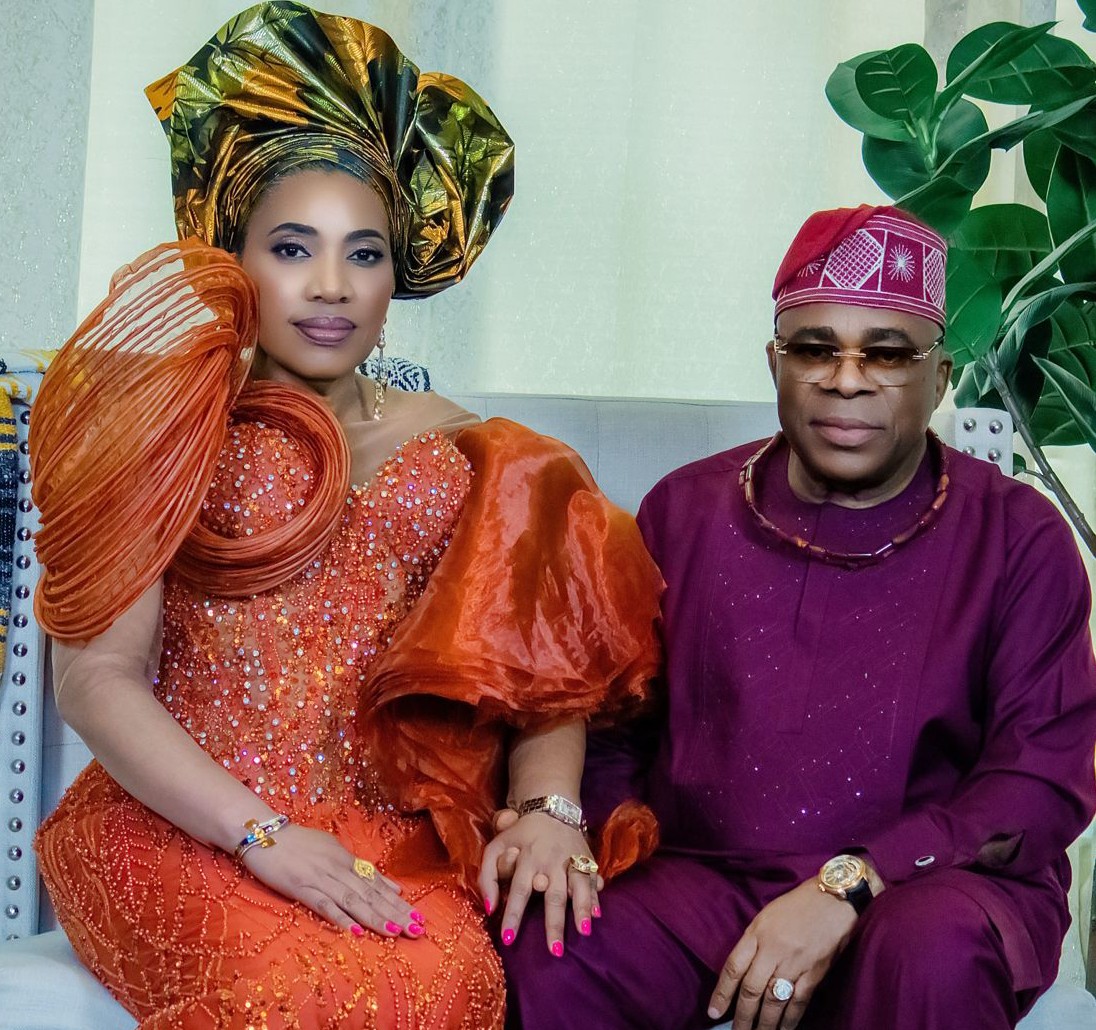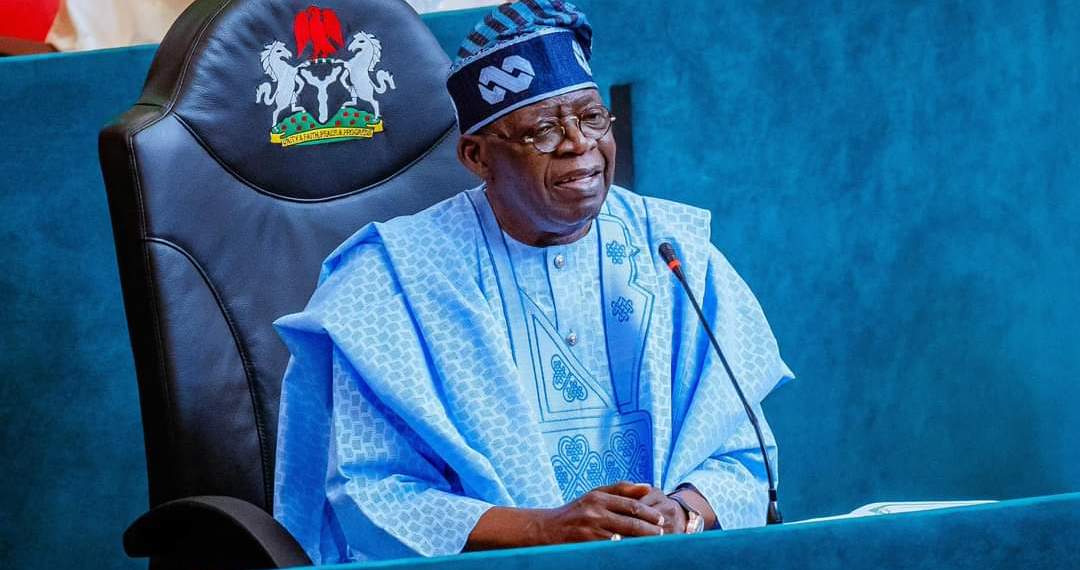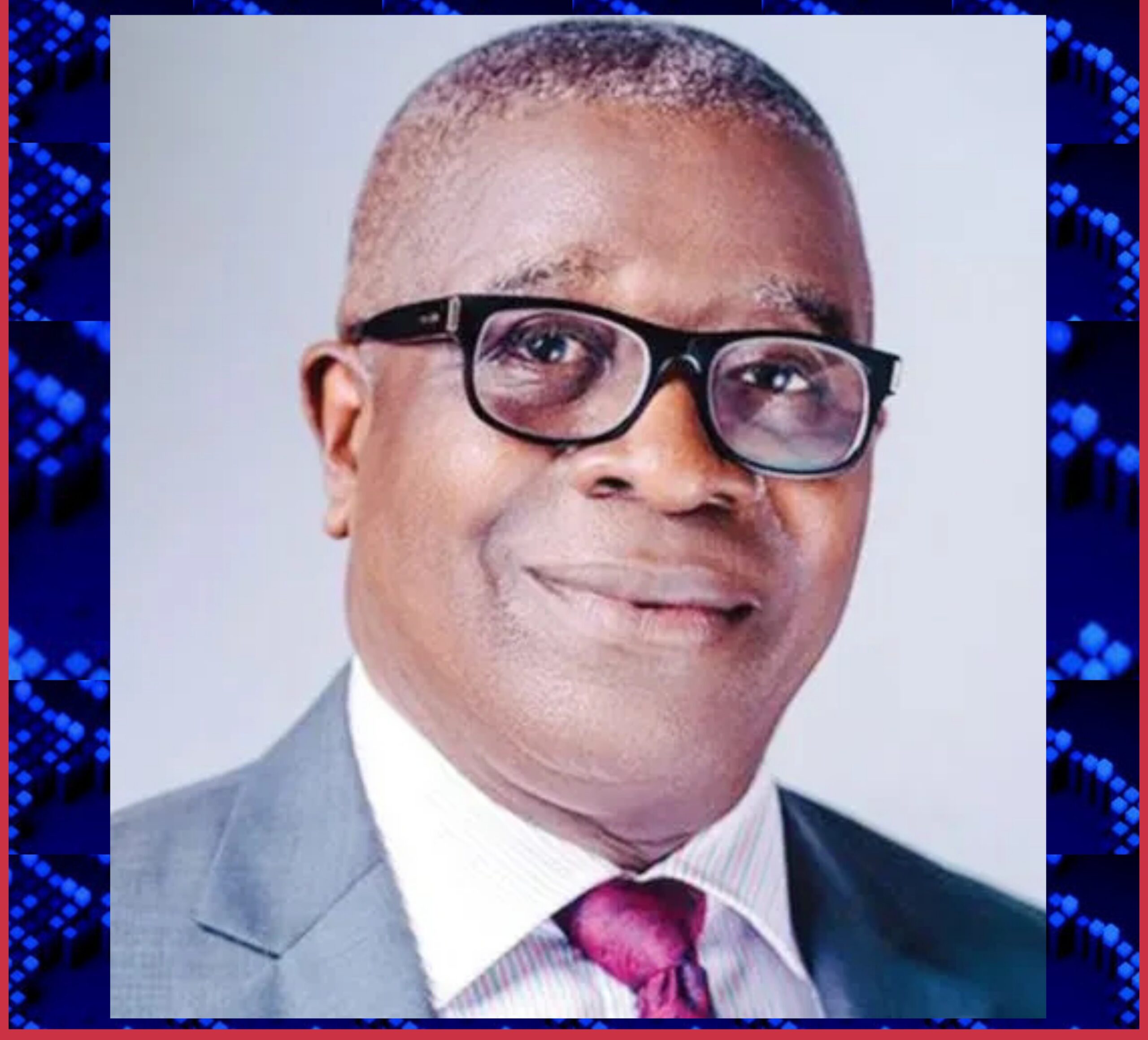“Now, on the throne of his forefathers, Owa brings with him not just a royal title, but a wealth of experience that positions him uniquely to lead Ijesaland into a new era of development. His reign is one that promises vision-driven leadership—fueled by his vast business network, proven track record, and a heart that beats for his people”

OLORI OMOLARA HAASTRUP, wife of the Owa Obokun of Ijesaland, Oba Clement Adesuyi Haastrup, in this interview reflects on the lifestyle of the monarch, his family and as well the features that make him tick in addition to the development that will make his tenure outstanding. Excerpts:
All along, as wife, were there signs that suggested that your husband would one day ascend the throne?
As his wife, I always knew that being a prince of Ijesaland came with the possibility—however remote—of one day ascending the throne. But if I’m honest, there was never anything in his words or actions that made me think he desired it. In fact, he said it repeatedly—to me and to the children—that he had no interest in becoming king. He was content to serve in his own quiet ways, to make an impact without the weight of a crown.
But destiny has a voice that cannot be silenced. And when God ordains a path, no man can resist it. Though he may not have sought the throne, the anointing of kingship was always upon him. And when the time came, it was clear—the crown was made for his head alone. Who is he to say no, when the Lord Himself has said yes? It was never about ambition; it was always about divine purpose. And in accepting the call, he stepped fully into the role that heaven had prepared for him all along.
Was do you think prepared him for the throne – the task of leading the Ijesa community?
Was he prepared in the conventional sense? Perhaps not. Like many truly chosen leaders, Owa did not pursue the throne with plans or personal ambition. His preparation was not in strategy or ceremony—it was in character, in compassion, and in the countless ways he had quietly served people throughout his life.
Though he may not have imagined himself as king, God had been preparing him all along—through his humility, his wisdom, his love for the Ijesa people, and his unwavering sense of justice. Leadership is not just about readiness—it’s about obedience to purpose. And when the call came, he rose to it with grace, courage, and deep reverence for the sacred responsibility placed in his hands.
It was clear that he was not stepping into kingship alone—God had gone before him, equipping him in ways only heaven could.
Owa’s journey from pharmacist to accomplished businessman is nothing short of inspiring. With a keen mind for enterprise, strategic thinking, and an unshakable work ethic, he rose through the ranks of Nigeria’s business landscape to become a respected and influential figure across multiple sectors. His transition from the world of healthcare into the complexities of commerce was marked by bold decisions, calculated risks, and a deep sense of purpose. Through the years, he has built an impressive legacy—one grounded in integrity, innovation, and excellence.
Now, on the throne of his forefathers, Owa brings with him not just a royal title, but a wealth of experience that positions him uniquely to lead Ijesaland into a new era of development. His reign is one that promises vision-driven leadership—fueled by his vast business network, proven track record, and a heart that beats for his people.
The people of Ilesa and the broader Ijesa region can look forward to transformational leadership—one that will prioritize economic growth, youth empowerment, and sustainable development. With his knowledge of investment, governance, and strategic partnerships, Owa is set to attract both local and international opportunities that will uplift the lives of the Ijesa people. From job creation to infrastructure, education to enterprise, he stands ready to harness his professional success for the collective good of his kingdom.
And by his side, as always, I—Olori Omolara—will stand in full support of this vision. Together, we are committed to making his dream for the Ijesa people a living reality. It is not just his reign; it is our shared calling, and with God’s help, we will work hand in hand to bring lasting impact, dignity and progress to Ijesaland.

How did you meet him and how has life with him over the years been?
Looking back on the years I’ve spent by my husband’s side, I can only bow in gratitude to God. Our journey together has been marked by both joy and challenge—as is true for any marriage. But through it all, God has been our foundation and sustainer.
I met His Imperial Majesty, Owa Obokun Adimula of Ijesaland, in late 1988 while he was still a prince and I was an undergraduate at the University of Ilorin. At the time, I was focused on my studies and full of dreams. I never imagined that love—and motherhood—was about to transform my life so completely. In 1990, while still in university, I became a mother to twin boys: Nicodemus Taiwo Adeniyi (affectionately called Olushina by his father as his first son) and Adekunle Kehinde Olumuyiwa. It was an overwhelming season, but God’s grace strengthened me. As Isaiah 55:8 (NLT) says, “My thoughts are nothing like your thoughts,” says the LORD. “And my ways are far beyond anything you could imagine.” Truly, God’s plan for my life was far more beautiful than I could have envisioned.
By the time our relationship began in earnest, Owa was already a father to two daughters from his previous marriage to the late Princess Doris Haastrup. I suddenly found myself transitioning from a young woman with no children to a mother of four—his two daughters and our twin sons. Though it was a demanding transition, love and faith carried us through. In 1992, I was blessed with our daughter, Olushola Adeola, and in 2002, we welcomed our youngest son, Clement Adesuyi Haastrup Jr.
We became parents to six wonderful children—three sons and three daughters. Sadly, we lost Princess Yetunde, and though her absence continues to weigh on our hearts, her memory remains a source of love and inspiration. Her life, however brief, was a gift, and her spirit lives on in all of us.
My husband has always been a man set apart—not only by lineage, but by his character. He is deeply compassionate, generous to a fault, and genuinely respectful of all people. I remember being struck early on by the way he addressed his driver, Baba Ilaje, with the utmost Yoruba courtesy, using the formal pronouns usually reserved for elders. That small act revealed his humility and intrinsic sense of human dignity.
Though he wasn’t publicly involved in a formal charity at the time, his everyday actions reflected a life of quiet service. He has always had a heart to uplift others, never seeking applause. His compass is his heart, and his anchor is his faith.
Over the years, I’ve watched him grow—as a husband, father, and now monarch. His unwavering faith, patience, and inner strength have been my covering. We have faced challenges—blending families, building trust, growing together—but love has always been our compass, and God our sustainer.
To be loved by him is to be cherished and known. To walk this path with him remains my life’s greatest blessing.
What distinct attributes peculiar to Ijesa people can you identify with him?
Strong Sense of Community and Generosity (Àjèjé) Owa embodies the Ijesa spirit of communal support. His generosity, even when it comes at personal cost, reflects the cultural value of collective well-being. He believes in lifting others and contributing to the well-being of the community, which aligns with the Ijesa tradition of collective progress and support.
Respect for All (Ìwà Pẹ̀lẹ́ and Ìbáṣepọ̀ Pẹ̀lẹ́) One hallmark of Ijesa culture is the deep respect shown to others regardless of age or status. His respectful treatment of ‘Baba Ilaje,’ using the formal Yoruba pronoun, is a perfect example. That humility and cultural politeness are deeply Ijesa.
Deep Spirituality and Faith, Ijesa people are historically spiritual, often blending traditional reverence with the Christian or Muslim faith. Owa’s rootedness in faith, and the way he attributes life’s blessings and challenges to divine purpose, reflects the Ijesa’s spiritual worldview—where nothing happens outside God’s will.
Dignity with Humility (Ìmúlòlùfẹ́ àtí Ìtẹríbá) Despite being a royal figure, my husband maintains a quiet dignity without arrogance—an Ijesa trait. They are known to carry their pride in heritage with humility and grace, never seeking to intimidate but to inspire.
Industry and Tenacity (Ìfaradà àtí Ìsapá) The Ijesa are historically known for their industriousness, being one of the first Yoruba subgroups to embrace education and commerce in colonial Nigeria. My husband’s drive to serve, build, and impact others speaks to this industrious, forward-looking spirit.

Does he like speaking the Ijesa dialect?
Absolutely. One of the things that often surprises people about Owa is his effortless command of the Ijesa dialect. In a time when many shy away from their indigenous tongues, he speaks it with pride, clarity, and authenticity—untainted by the polished inflections of Lagos-refined Yoruba. When he’s among his people, you can hear the richness of his roots in every word. It’s not just that he speaks Ijesa fluently—it’s that he speaks it as one deeply proud of where he comes from. His dialect is not an affectation; it is a natural expression of identity, culture, and deep connection to Ijesaland. To hear him speak is to hear the voice of his ancestors—strong, eloquent, and full of grace.
How does he take issues relating to the culture of his people?
Owa takes issues relating to the culture of his people with deep reverence, a sense of responsibility, and a heartfelt commitment to preservation and progress. He is not merely a passive inheritor of tradition—he is an active custodian of Ijesa heritage. Whether it’s language, customs, festivals, or values, he approaches them with a thoughtful balance of respect for the past and a vision for the future.
He believes that culture is not just for display but a living legacy that must be protected, practised, and passed on. When cultural matters arise, he engages with them seriously—consulting elders, involving the youth, and always ensuring that the dignity of the Ijesa identity is upheld. He understands that the strength of a people lies in their ability to remember who they are, and he carries that truth with pride and purpose in all he does.

What were his favorite meals?
Owa has always had a deep love for the rich culinary heritage of Ijesaland—he enjoys local dishes with genuine delight, especially when they are prepared in the traditional way. Though his home was filled with the warmth and values of Ijesa culture, including his strong connection to the dialect, he tended to express it most fluently among his people and in communal settings. While he may not have spoken the dialect extensively at home, his pride in his roots was never in question. His children grew up knowing the importance of where they come from—absorbing his love for tradition through stories, customs, and the way he carried himself with dignity as a true son of Ijesaland.
Quote: “And by his side, as always, I—Olori Omolara—will stand in full support of this vision. Together, we are committed to making his dream for the Ijesa people a living reality. It is not just his reign; it is our shared calling, and with God’s help, we will work hand in hand to bring lasting impact, dignity and progress to Ijesaland”




